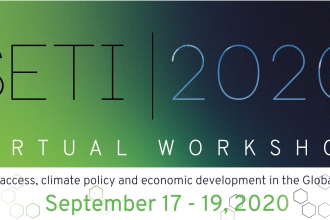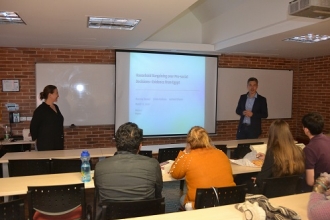
The Fifth Annual Meeting of the Sustainable Energy Transitions Initiative (SETI)
Register now! On September 17 – 19, 2020, SETI will organize its fifth annual workshop on global energy transitions research. The workshop will be held virtually over Zoom, and will feature sessions…



